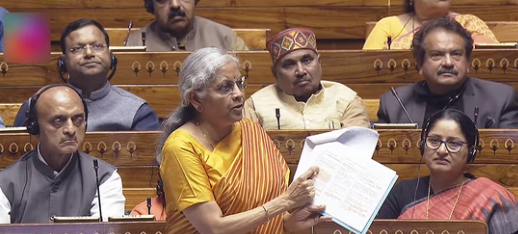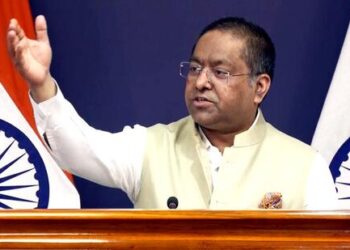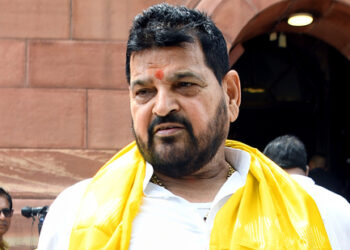In a scathing critique of the economic policies under the previous UPA regime, India’s Finance Minister Nirmala Sitharaman launched a verbal assault on former Prime Minister Manmohan Singh, blaming what she termed as a ‘leadership problem’ for the country’s economic woes. Sitharaman’s remarks come amid a heated debate over the trajectory of India’s economy and the effectiveness of past governmental strategies.
Addressing a gathering of industry leaders and policymakers at an economic forum in New Delhi, Sitharaman minced no words as she lambasted the UPA’s governance approach, particularly targeting Manmohan Singh’s tenure as Prime Minister. She argued that the policies formulated during the UPA era lacked foresight and failed to address the structural issues hindering India’s growth.
“The leadership problem during the UPA regime was evident in its inability to provide a clear direction for the country’s economic development,” Sitharaman asserted. “The policies pursued at that time lacked dynamism and failed to stimulate the economy effectively.”
The Finance Minister pointed to what she described as a series of policy paralysis instances during the UPA tenure, alleging that the government’s indecisiveness had contributed to stalling economic progress. Sitharaman emphasized the importance of strong leadership in steering the nation through complex economic challenges, hinting at deficiencies in the leadership under Manmohan Singh’s stewardship.
Sitharaman’s remarks have reignited the debate over the effectiveness of the UPA’s economic policies, with supporters and critics of the former government offering contrasting perspectives. While some have echoed Sitharaman’s criticisms, others have defended the UPA’s track record, highlighting achievements such as the implementation of social welfare programs and sustained GDP growth during that period.
The Finance Minister’s critique comes at a crucial juncture for the Indian economy, which is grappling with a myriad of challenges including inflationary pressures, sluggish growth, and global economic uncertainties. Sitharaman has reiterated the current government’s commitment to implementing structural reforms aimed at bolstering economic resilience and fostering sustainable growth.
Meanwhile, reactions from opposition leaders have been swift, with members of the Congress party denouncing Sitharaman’s remarks as politically motivated. Manmohan Singh, known for his understated demeanour, has yet to issue a direct response to the Finance Minister’s criticisms.
As the discourse surrounding India’s economic policies intensifies, Sitharaman’s comments have set the stage for a broader examination of past governance approaches and their implications for the nation’s future trajectory.
The Finance Minister’s assertions are likely to fuel further debate over the legacy of the UPA regime and the efficacy of its economic strategies, underscoring the divergent viewpoints that continue to shape India’s policy landscape.








 India
India











